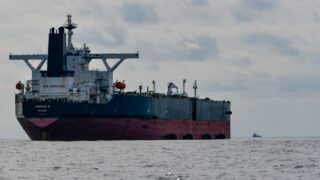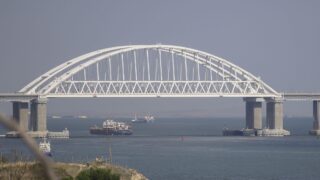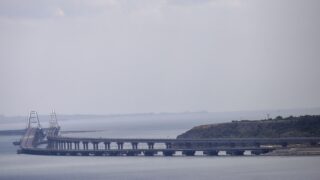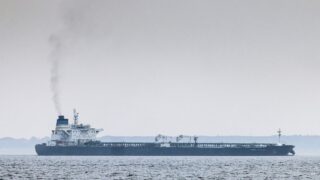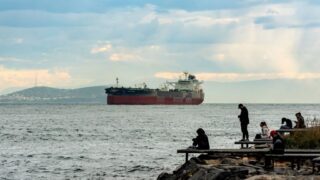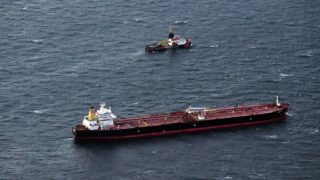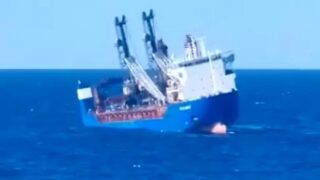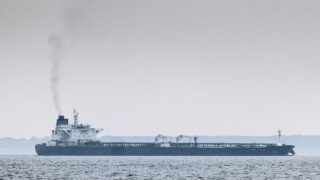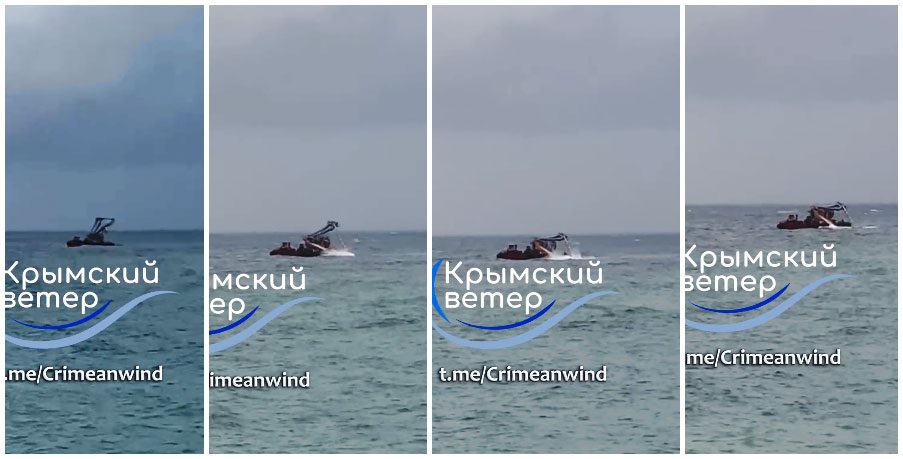
Storm claims third Russian vessel near occupied Crimea as Greenpeace urges action over oil spill
A floating crane has become the third Russian vessel to sink off the occupied Crimean coast amid severe storm conditions on 15 December, Ukrainian Telegram channel Krymsky Veter reported.
Video footage shared by the channel shows the crane’s boom collapsing under powerful waves and gusty winds near the shoreline of occupied Yalta, with the ship appearing unstable amidst the stormy seas. The channel questioned why the vessel wasn’t moved to port despite storm warnings issued several days in advance.
Read more on the previous incident, involving Russian tankers:
Two Russian tankers sink near Kerch strait amid storm (video)
Greenpeace’s warning
Meanwhile, Greenpeace Ukraine has warned of an environmental catastrophe following the sinking of two Russian tankers earlier today near occupied Kerch. According to the organization, approximately 4,300 tonnes of fuel oil and possibly other oil products are spilling into the Kerch strait waters.
“Any oil or petrochemical spill in these waters has the potential to be serious,” said Dr. Paul Johnston, Head of Greenpeace Research Laboratories at the University of Exeter. “It is likely to be driven by prevailing wind and currents (moving now to the North-East) and in the current weather conditions is likely to be extremely difficult to contain.”
The organization reports that both tankers were delivering fuel to the Russian navy, with their Marine Traffic location system disabled for 12 days. Tracking data from 1 October revealed a delivery route from Volgograd inside Russia to the Kerch strait.
According to Greenpeace, the region previously suffered an environmental disaster in 2007, when 1,200 tonnes of oil from a Russian tanker combined with other contamination caused severe environmental damage that was observed even a year after the accident.
Related:



